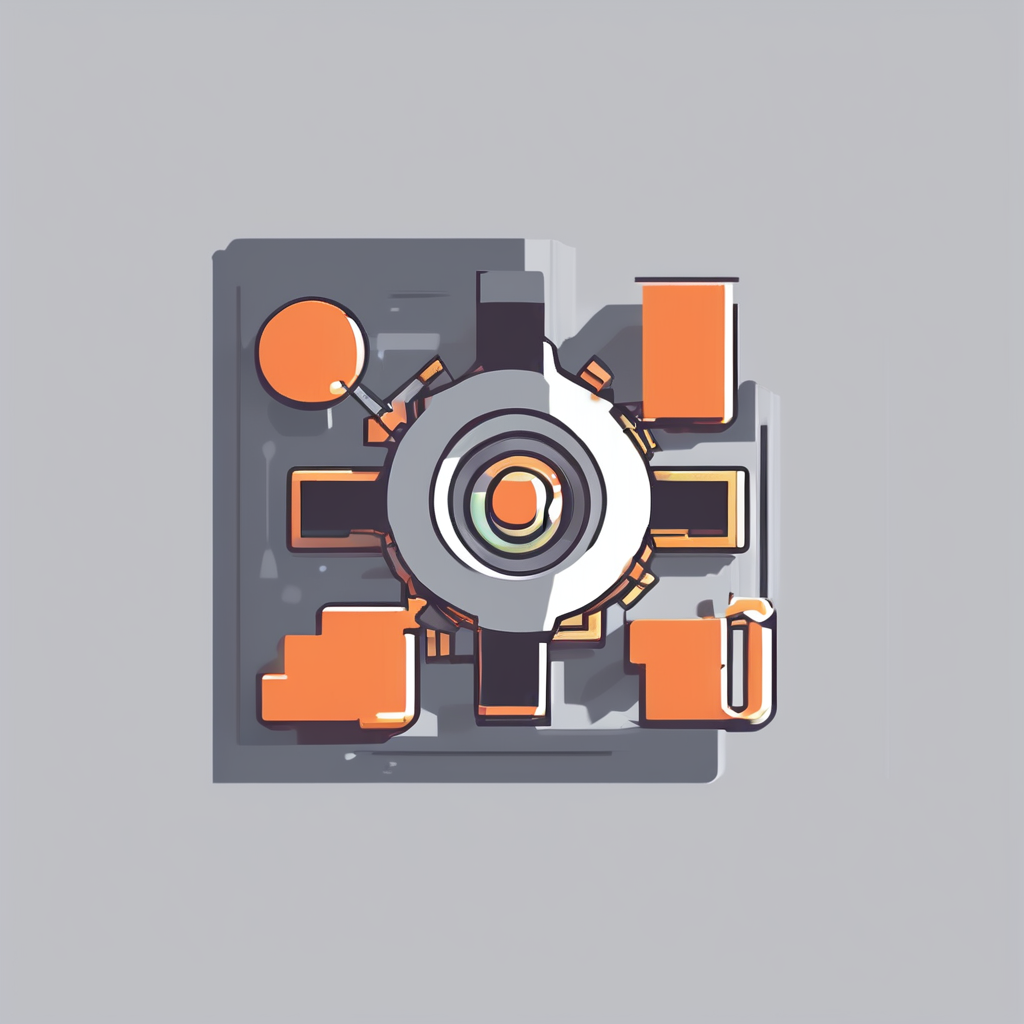Recent Trends in UK Computing Hardware Innovation
In recent years, UK hardware trends have shown a dynamic surge fueled by ambitious startup developments. These startups focus heavily on advancing computing innovation through novel device architectures and improved energy efficiency. One prominent trend is the integration of AI-specific chips, a move that aligns with global demands for faster, more intelligent hardware solutions.
Popular technology focus areas include edge computing, quantum hardware, and specialized processors for machine learning tasks. These sectors hold significant market relevance as industries seek to process data locally, reduce latency, and enable real-time analytics. Additionally, there is a growing interest in sustainable materials and modular designs that prolong device lifecycles, reflecting a broader push towards environmentally conscious innovation.
This might interest you : How Will Future Technologies Shape the UK Computing Hardware Industry?
Key drivers for the UK’s hardware sector progress encompass increased access to venture capital, stronger partnerships between academia and industry, and supportive infrastructure that encourages rapid prototyping and testing. Government backing through grants further stimulates innovation by reducing financial risks for startups. This ecosystem fosters a fertile environment for companies to experiment and refine cutting-edge hardware solutions, evidencing the UK’s vibrant role in global computing innovation.
Notable UK Startups Pioneering Computing Hardware
In the evolving landscape of UK startups, several hardware pioneers stand out for their impactful contributions. These companies specialize in areas like AI chip design, edge computing devices, and sustainable hardware materials, reflecting the broader UK hardware trends. Their innovation is crucial for advancing the sector’s competitiveness and aligning with growing global demands.
Also to discover : How Can UK Computing Hardware Innovations Shape Global Technological Trends?
A prime example is a startup focused on developing energy-efficient AI accelerators, enhancing local data processing speeds while reducing power consumption. Another firm leads in modular device construction, aimed at extending hardware lifespans and reducing electronic waste. These startups benefit from a synergy between academic research and industrial experience, allowing rapid iteration and deployment of cutting-edge solutions.
Their distinctive approaches often result in recognized breakthroughs—ranging from novel chip architectures to specialized sensor arrays—garnering awards and support within the technology community. Such recognition not only validates their innovations but also attracts venture capital, fostering further growth.
Ultimately, these pioneers embody the spirit of computing innovation within the UK, pushing boundaries through creative hardware designs and practical applications that resonate with both local and international markets. Their success underscores the advantages of a robust ecosystem where startup developments thrive on collaboration and forward-thinking strategies.
Recent Trends in UK Computing Hardware Innovation
Emerging UK hardware trends reveal a strong emphasis on computing innovation driven by agile startup developments. These startups focus on integrating advanced AI functionalities directly into hardware. This shift addresses demands for fast, local data processing, critical to reducing latency in applications like autonomous systems and real-time analytics.
Key technology areas shaping these trends include edge computing devices optimized for low-power environments, quantum hardware advancing computational power boundaries, and energy-efficient AI accelerators that balance performance with sustainability. Such focus points enable hardware solutions tailored for niche yet rapidly expanding markets, increasing the sector’s competitive edge globally.
Drivers vital to the UK hardware sector’s advancement extend beyond technology alone. Increased venture capital fuels risk-taking in startup developments, while collaboration between universities and industry accelerates the translation from research to market-ready products. Additionally, government initiatives offering grants and infrastructure support mitigate financial hurdles and foster an innovation-friendly ecosystem.
Together, these elements create an environment where computing innovation thrives through rapid prototyping and modular product strategies. This dynamic landscape positions the UK as a noteworthy contributor in the global hardware arena, aligning technical progress with evolving market and sustainability demands.
Recent Trends in UK Computing Hardware Innovation
The latest UK hardware trends highlight a surge in computing innovation propelled by agile startup developments focusing on next-generation processing solutions. Startups increasingly target AI acceleration and edge computing devices that operate efficiently in low-power environments, addressing the growing market demand for localized, real-time data handling.
Key technology focal points include quantum computing components, advanced AI accelerators, and modular hardware designs. These trends reflect strategic efforts to enhance performance while balancing sustainability through energy-efficient engineering. The rapidly evolving needs of industries such as autonomous vehicles and smart infrastructure further intensify this innovation thrust.
Driving this progression are factors like increased venture capital availability, which supports experimental startup developments, and strengthened collaborative networks between academia and industry that shorten product development cycles. Simultaneously, government subsidies and innovation-friendly policies reduce barriers to entry by mitigating financial risks, encouraging startups to prototype and iterate quickly.
Together, these dynamics cultivate a fertile environment for UK hardware trends that meld cutting-edge technology with market needs. This synergy between technological advancement and commercial viability showcases the UK’s capacity to lead in the global hardware innovation landscape.
Recent Trends in UK Computing Hardware Innovation
Current UK hardware trends are shaped by a strong emphasis on computing innovation within agile startup developments. These startups increasingly focus on integrating AI accelerators and edge computing devices, designed to run efficiently on low power while meeting real-time processing demands. This trend addresses industries requiring rapid, local data computation to reduce latency and energy consumption.
Prominent technology areas include quantum hardware components pushing computational boundaries, modular architectures improving device longevity, and AI-specific chips optimized for performance and efficiency. These technologies serve expanding markets such as autonomous systems, smart infrastructure, and sustainable electronics, illustrating the sector’s growing relevance.
Key drivers fueling hardware sector progress in the UK encompass increased venture capital availability, which lowers financial risk for startups, and a robust collaboration network between academia and industry that accelerates innovation cycles. Government grants and infrastructure support further enhance this environment by facilitating rapid prototyping and scaling.
Together, these elements create a dynamic ecosystem where startup developments thrive on combining cutting-edge technology with practical, market-driven solutions, reinforcing the UK’s pivotal role in global computing innovation within the hardware domain.
Recent Trends in UK Computing Hardware Innovation
UK hardware trends continue to evolve rapidly, driven by a surge in startup developments focusing on cutting-edge computing innovation. Startups increasingly prioritize AI integration within hardware, particularly through the development of energy-efficient AI accelerators and edge computing devices tailored for real-time, local data processing. These efforts address critical market needs such as reduced latency and sustainable energy consumption.
Key popular technology focus areas reflect this approach: quantum hardware pushes computational limits; modular design enhances device longevity and adaptability; specialized AI chips optimize performance for machine learning applications. These areas not only serve expanding markets like autonomous systems and smart infrastructure but also ensure UK hardware trends remain globally competitive.
The primary drivers fueling hardware sector progress consist of increased venture capital investment supporting risk-taking in startup developments, as well as strong industry-academia collaborations that accelerate innovation pipelines. Additionally, government programs provide essential grants and infrastructure that lower financial and technical barriers, enabling rapid prototyping and scaling. This combination fosters an ecosystem where computing innovation thrives by marrying technological advances with practical demands, positioning UK startups as influential players in global hardware evolution.

